Weeks ago, I ran out of ginger for my daily banana smoothie which I wrote about here. Luckily I have my own ginger plant in the kitchen so I pulled a rhizome out of a pot because it would take me days before I could buy a new stock of organic ginger in the organic grocery store again.
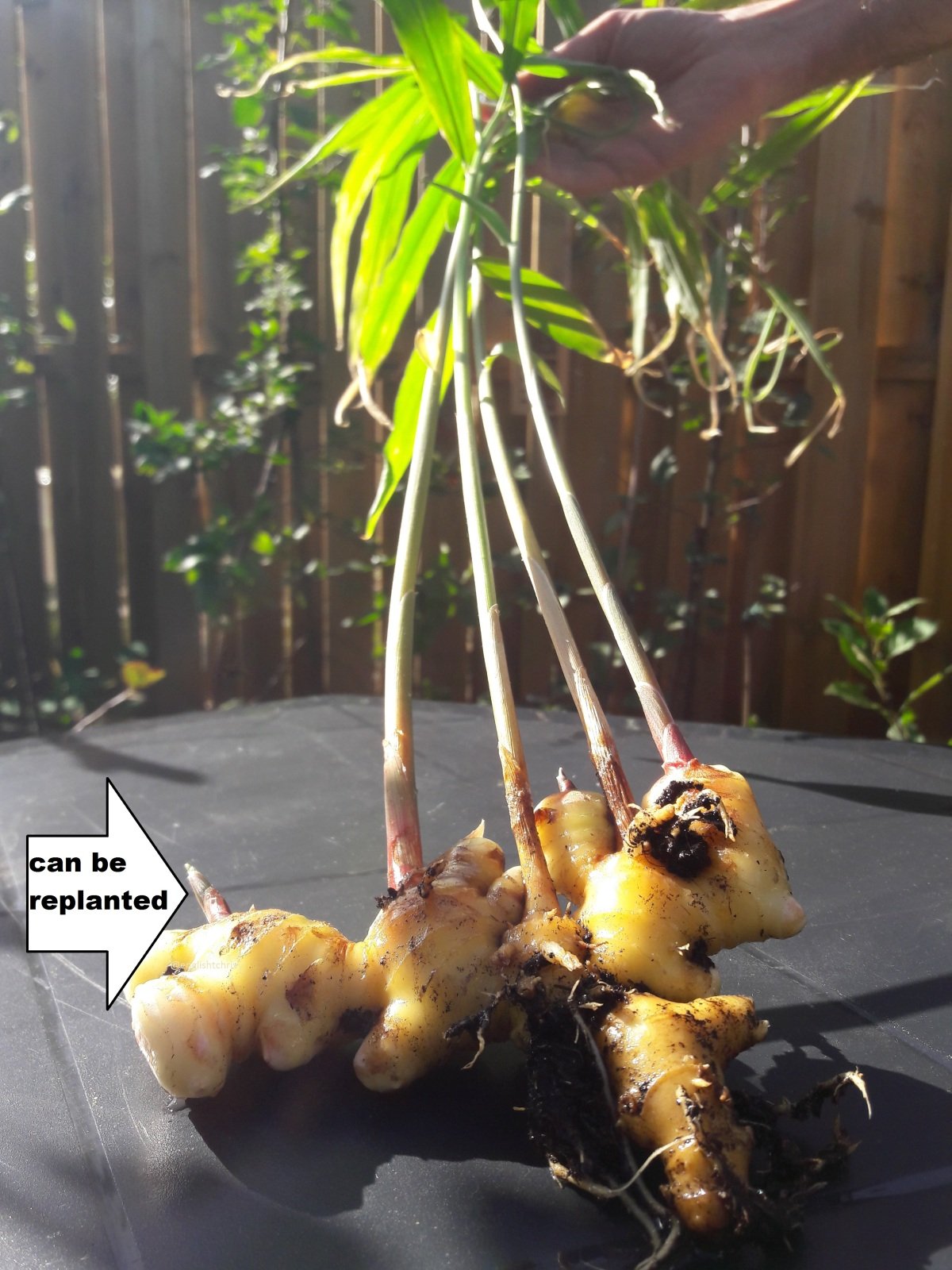
Ginger? In the Netherlands? Yes, they could also grow here but indoors and pretty slow. I've been re-growing the ginger for five years now for the very reason that in times like this, I could just take one - fresh out of my kitchen.
How on earth did I come up with this idea? Ginger is sold pretty pricey in the organic shop here. In the Philippines, we stick them in the ground and they send shoots like runners. Like bamboo, they'd spread pretty fast with not much caring requirements. Here, it's pretty cold so it's tough growing them - that's why they're pricey. A kilo ginger costs 8 euro in the organic shop. I experimented growing a thumb size a rhizome piece of ginger in a pot 5 years ago and till now I'm still using that 1st ginger's rhizome's off-springs. And in times like that day, I ran out of ginger and am days far off doing the groceries I could just pull one out the pot.
It's very easy to grow ginger in the pot indoors.
Just cut a thumb size of the ginger you have at home with nodes on it. Nodes are easy to identify they just look like tiny plants about to burst out of that rhizome.
Soak that ginger in lukewarm water (in cold season) or just tap water (in summer days) for 24 hours.

Place in a pot and give it a good soak. I just use small pots. This is one of those baby ginger plants that I'll soon be repotting.
If it has grown and roots start shooting out of the pot, re-pot the baby ginger plant in a wider but shallow pot.
Water 2 times a day and it'll start shooting off rolled leaves.
You can also use the very same method with a turmeric. These are what the nodes of a turmeric look like.
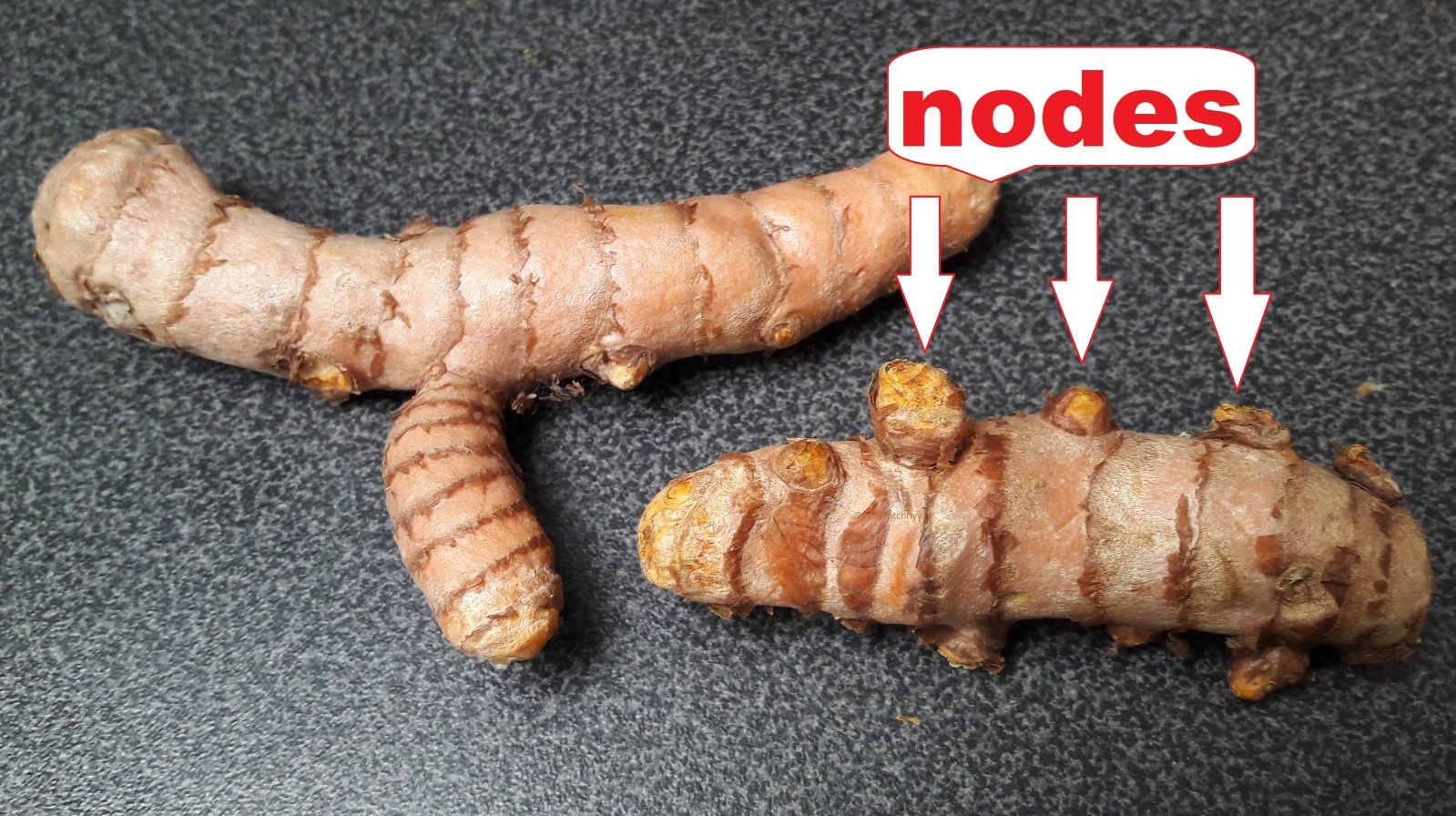
This is one of those baby turmeric plants I'll soon be re-potting in a larger pot. There are probably 2 rhizomes growing in there now.
In my case, I don't plant them in huge pots anymore. I used to but the rhizomes tend to get all tangled so plucking them out means plucking the whole group of ginger rhizomes in the pot. I just plant one rhizome a pot and even if I do they just grow pretty huge but harvesting won't hurt any other ginger plant.
Never stick the ginger plant in the ground if you live in places with weather conditions like the Netherlands or in Europe. In my first year of doing this, the ginger plants grew taller than I did in the huge pots. I got excited about how they could probably grow in summer if I put them in the ground. In as short as a week, their leaves turned yellow so I knew something was wrong. I pulled the ginger out of the ground and saw light yellow skinny centipede munching on them. Each rhizome has about 8 or more. I cleaned whats left, cut every stem and the munched parts and soaked them into lukewarm water. I knew I had to start all over again. That's when I've decided to plant them into tiny pots. I plant them in plastic bags though~ then in the pot. This way, if it happens that there are more than just one rhizome of ginger growing in the pot, I could just pull the plastic bag off the pot, slit it with scissors and shake the leaves off, use one ginger and put the other plant back into a new plastic bag without damaging its roots.
It's not just ginger and turmeric I'm regrowing and recycling. Perhaps like the many of other Steemians, we just also want to be self sufficient so I've decided to grow more plants and some of them others, probably throw out.
Here are the other plants anyone could grow and re-use in pots or containers or better yet, in your garden.
Pineapple
Yes, I have three pineapple plants growing indoors in pots and am looking forward to fruiting and hopefully it's soon. The smallest have two suckers now and that counts to five now. How did I do that?
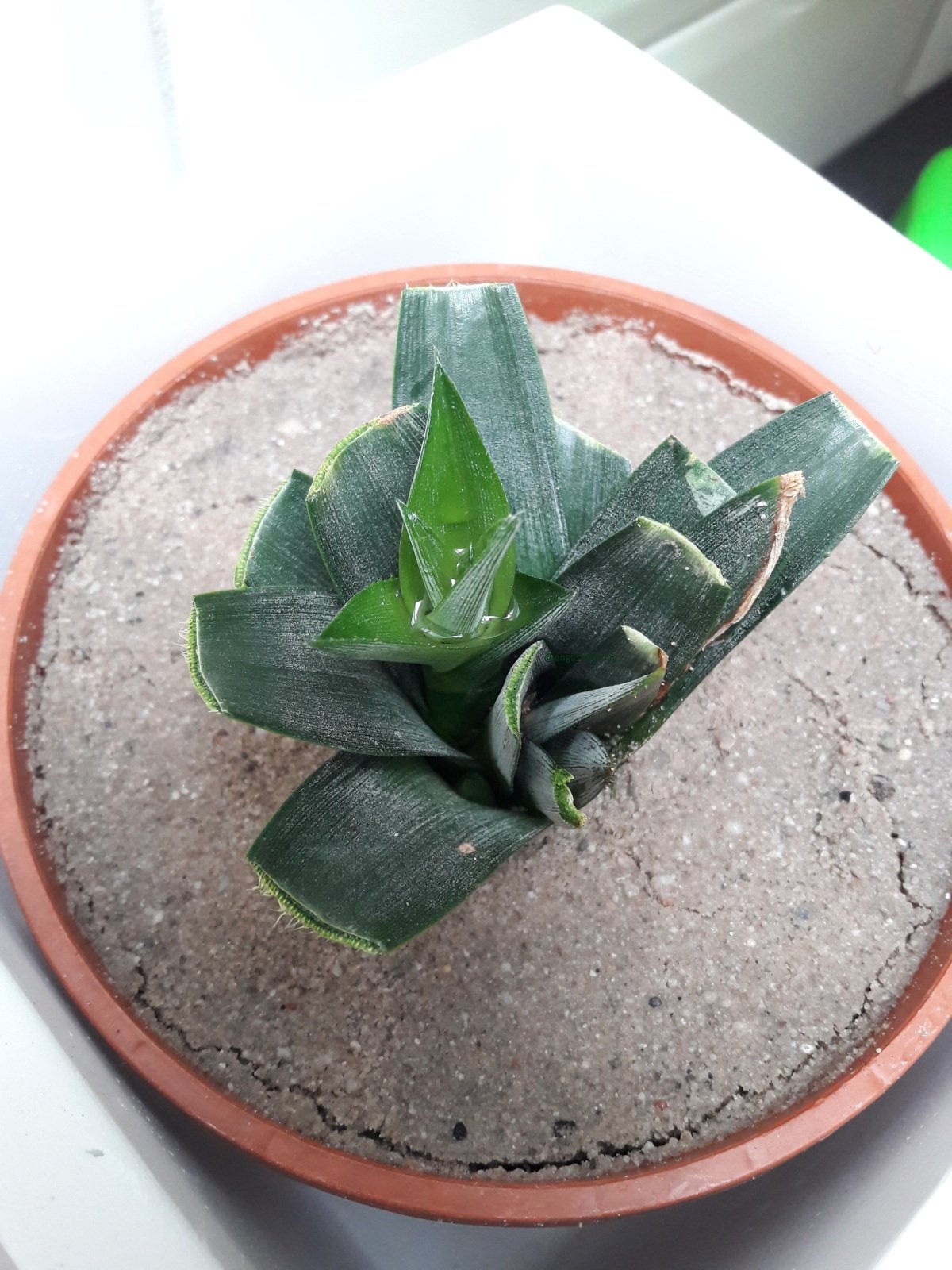
I bought organic pineapples on sale. Why organic? I've been to a beautiful place in South East Asia and the villa where we stayed on vacation in 2013 was surrounded by pineapple fields. I saw the farmers sometimes spray something on the fruits as they are usually attacked by black ants. The farmers were wearing a white suit (one that looks like what that of a forensic quarantine team member wears) and what looks like a gas mask. I dreaded going out when I saw them do that cause whatever harmful stuff there is in the sprays they were using could be airborne.
Where I came from, some farmers put sulfur on the crown to fasten its ripening. That's what causes the browning of the leaves and having a yellow ripe looking pineapple that still tastes so sour. So, I only buy organic ones. Tagaytay has the best organic pineapple plants in the Philippines and my friends and I would drive all the way up to harvest them ourselves when we buy.
How do you know whether the pineapple crown is worth growing? Try plucking the crown of the pineapple fruit. If any leaf comes off, don't buy it specially if the one on the very top did, chances are it's been soak on to die. On my first years here, it was easy to score pineapples with good crowns but after a documentary showing that some folks have manage to have their own pineapple farm in the UK has been shown, the tips of those crowns started getting either punched to damage with the tag price or they come off easily. If all the leaves stayed intact even if it has been damaged or punched in with a tag price as long as the leaves are in tact - it would grow. As you can see this one has been damaged but look it even has suckers and suckers tend to fruit earlier.
Cut the pineapple crown off the fruit. Make sure to have at least an inch of a pineapple flesh still attached to it. Some would say just twist the crown off the fruit. In my experience it didn't work here and neither growing them from seeds. I've only used growing from crowns.
Pluck the leaves off the pineapple crown.
Start plucking the leaves from the bottom of the crown attached to the pineapple flesh.
Stop till the last 5 columns of leaves.
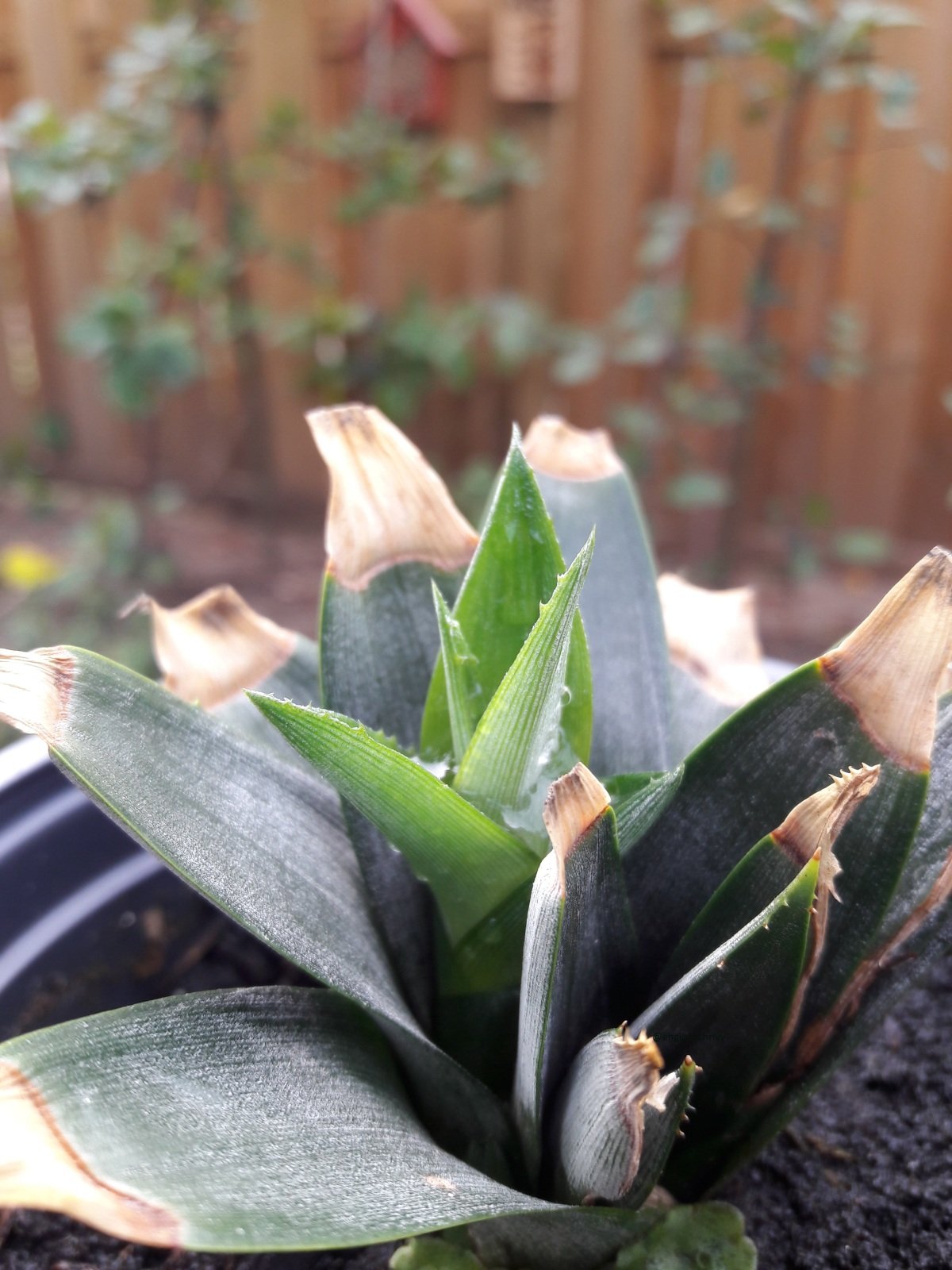
Give the pineapple flesh around the crown a downward push and they'll automatically come off it and a hard center would still stay attached to the crown.
Soak in lukewarm water for 3 days and watch the roots grow. Pineapple roots are brown if they ha
Pot and water twice a week.
Some of them already have roots that look like this and that would be pretty easy to grow. This is an example of a
Here are the adult pineapple plants I have that are growing indoors which I'd be letting out next summer to fruit. They also work as ornamental plants at home.

Here is the place that has successfully grown pineapple that fruits in UK which inspired me in starting planting one knowing they could just also be grown in containers.
If you let them out in summer, make sure to re-pot them to move them indoors or in the greenhouse when autumn breeze seeps in.
Shake every soil attached on the roots first using squirts of water from your garden hose to avoid causing any damage to the pineapple roots. Make sure every soil is really off it then re- pot.
Water once a week and set on direct sunlight while they are indoors.
Move outdoors once the temperature stays to 16 degrees and there's no more chance of freezing.
Mangoes :Philippine Mangoes
Yes, I have two Philippine Mangoes and one apple mango in pots. I won't elaborate on this since I wrote about it in this article. It would take 5 to 7 years for a mango tree to fruit.
This is the oldest among them, an almost five year old apple mango. It's pretty small because I've cut 1/3 of its roots every spring as I was trying to bonsai it.
These are the two Philippine Carabao Mangoes I've grown. They're not a year old yet and I'll be cutting 1/3 of their roots in Spring to bonsai them, too. They tend to grow way tall and I just want a dwarf one.

Are they organic? Yes, this is what they look like when they've arrived here. They didn't have that ultra smooth peel and they are not pretty huge.
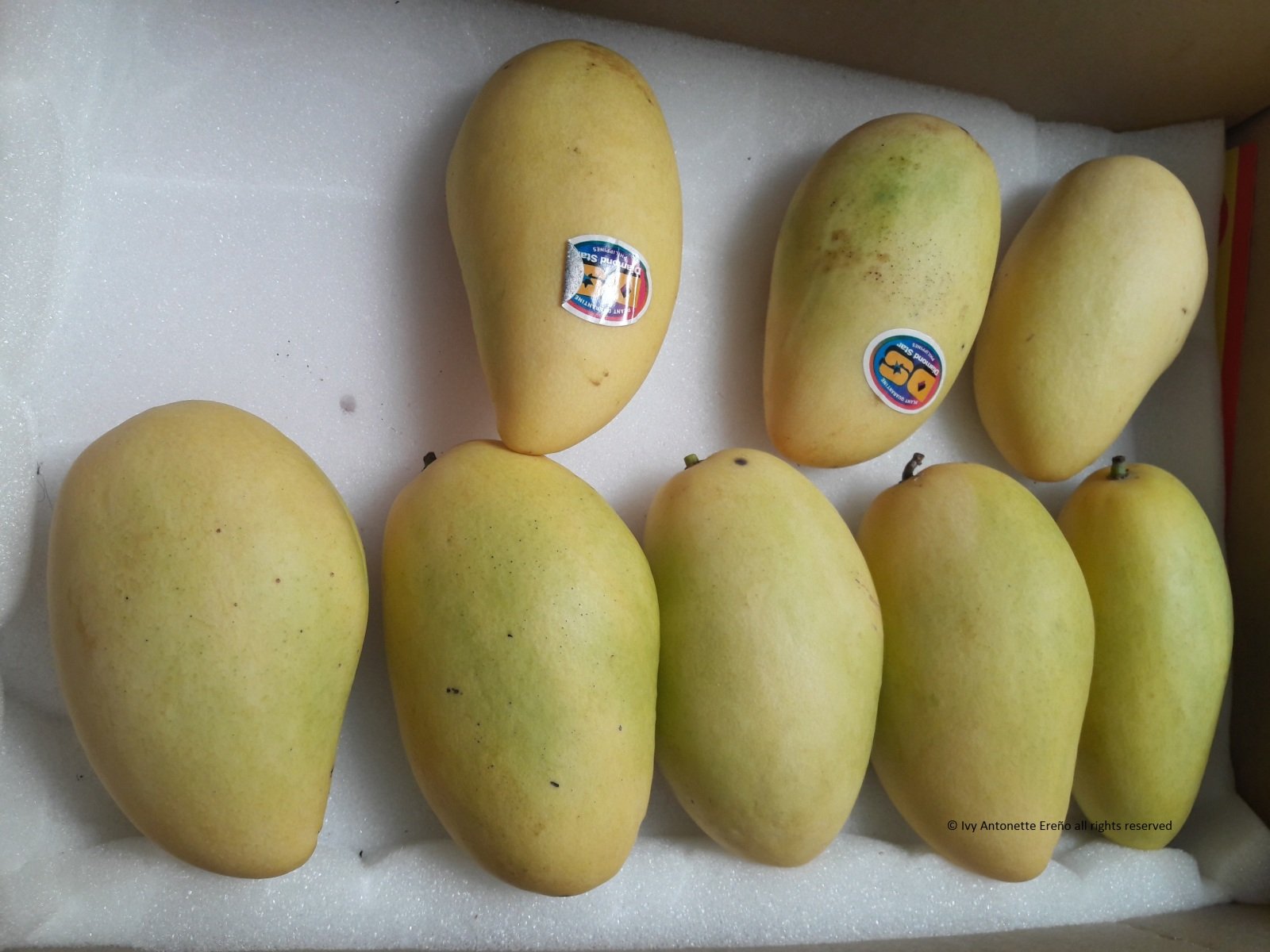
Avocados
I also have managed to grow 12 young avocado trees. Most of them already 3 years old. This is the oldest of them all - 4 years old. I'd be moving it to the organic garden soon.
Next year, I'd be planting this one in the ground. It's almost 5 years old and that means it's now an adult. It could already manage the cold and freezing as long as it's on the ground. Even in the tropical countries, some avocados would take 5 to 7 years before fruiting.
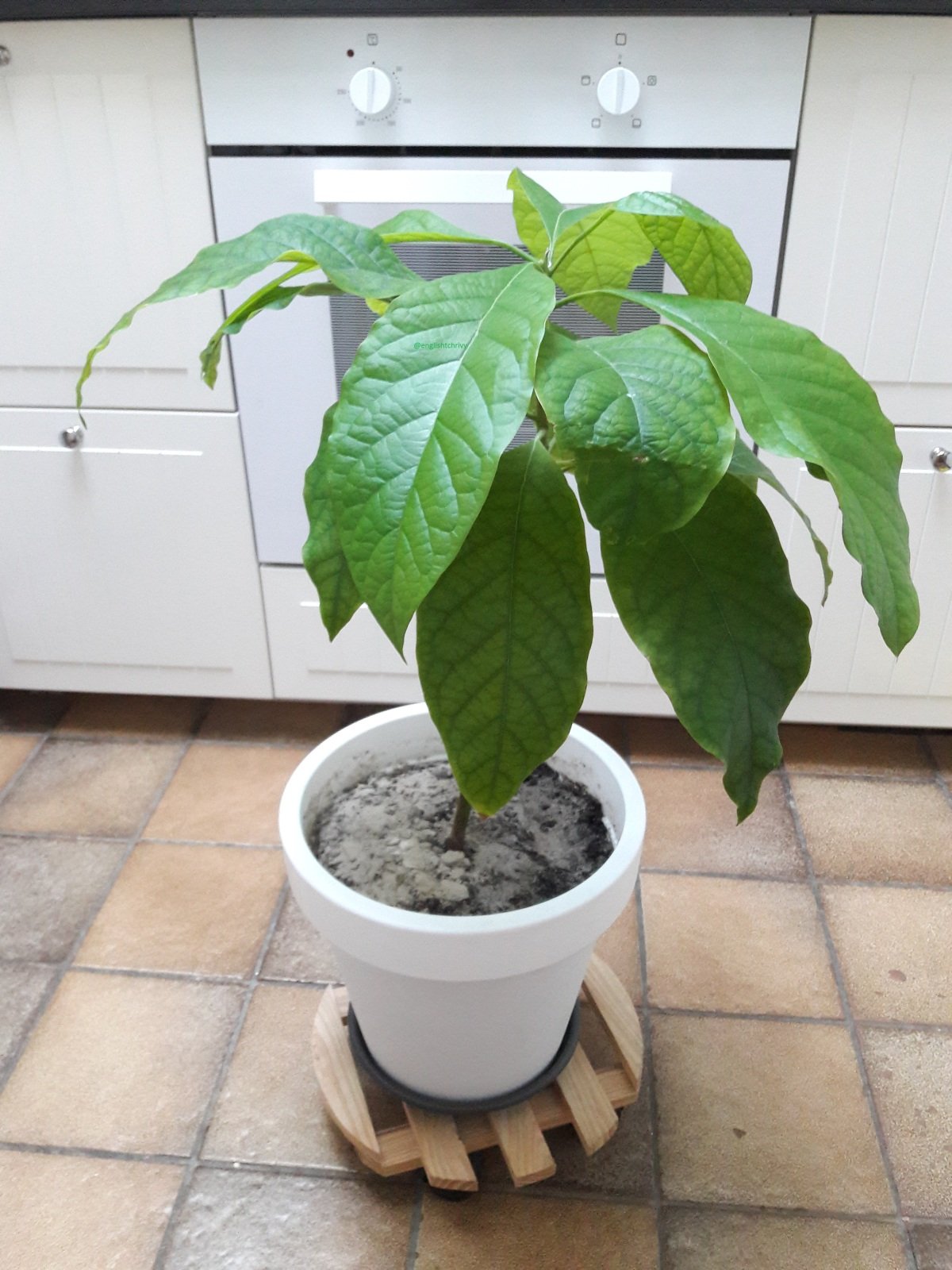 4 years old
4 years old
It's also pretty easy growing avocados here. I just bought organic avocados and instead of cutting them in half I just peeled the fruit and remove the flesh by scooping it with a spoon.
Washed the seed and all that was left was a seed with a brown coat.
Many people advised doing this but I didn't.
I just soaked the seed in lukewarm water for 24 hours to soften the seed coat.
Peel the seed coat off just by sinking your nails on it and it would expose the white seed in it.
I did more of this than soaking the seed in water for weeks since I don't want to have damp in the house.
Place just the half of the seed in the pot.
Soak and give it 2 - 3 weeks till it sprouts.
Water two times a week.
Set on direct lights.
The seed is actually the cotyledon or the food of the young avocado plant so I never pluck those seeds off the young avocado plant till they turn brown.
Here are a few of my avocado plants. I've manage to grow 12 of them, one died in winter last year. That's because I let it stay in a pot in the green house to check if they'd manage to survive and obviously, they have to be planted in the ground.
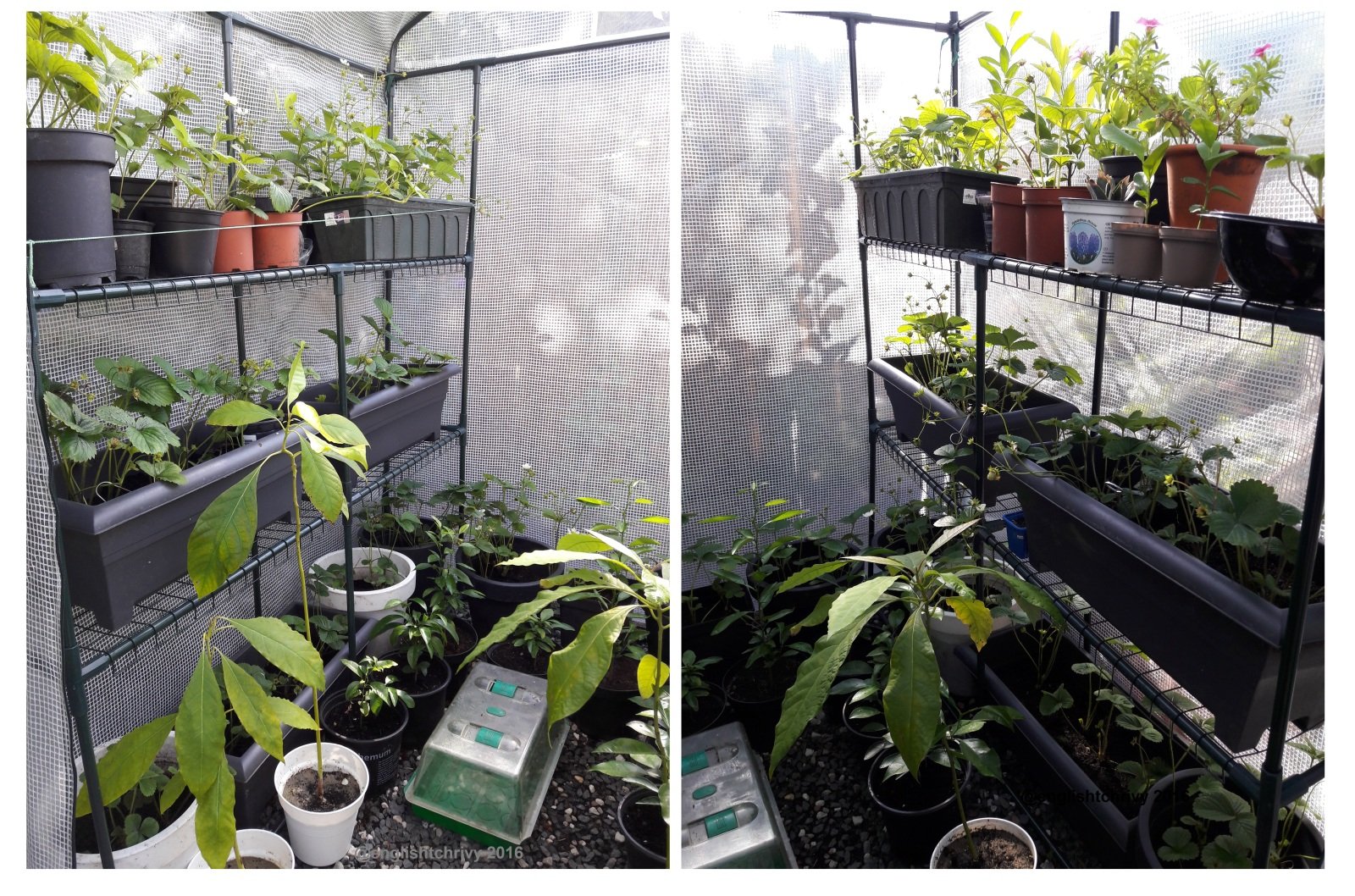
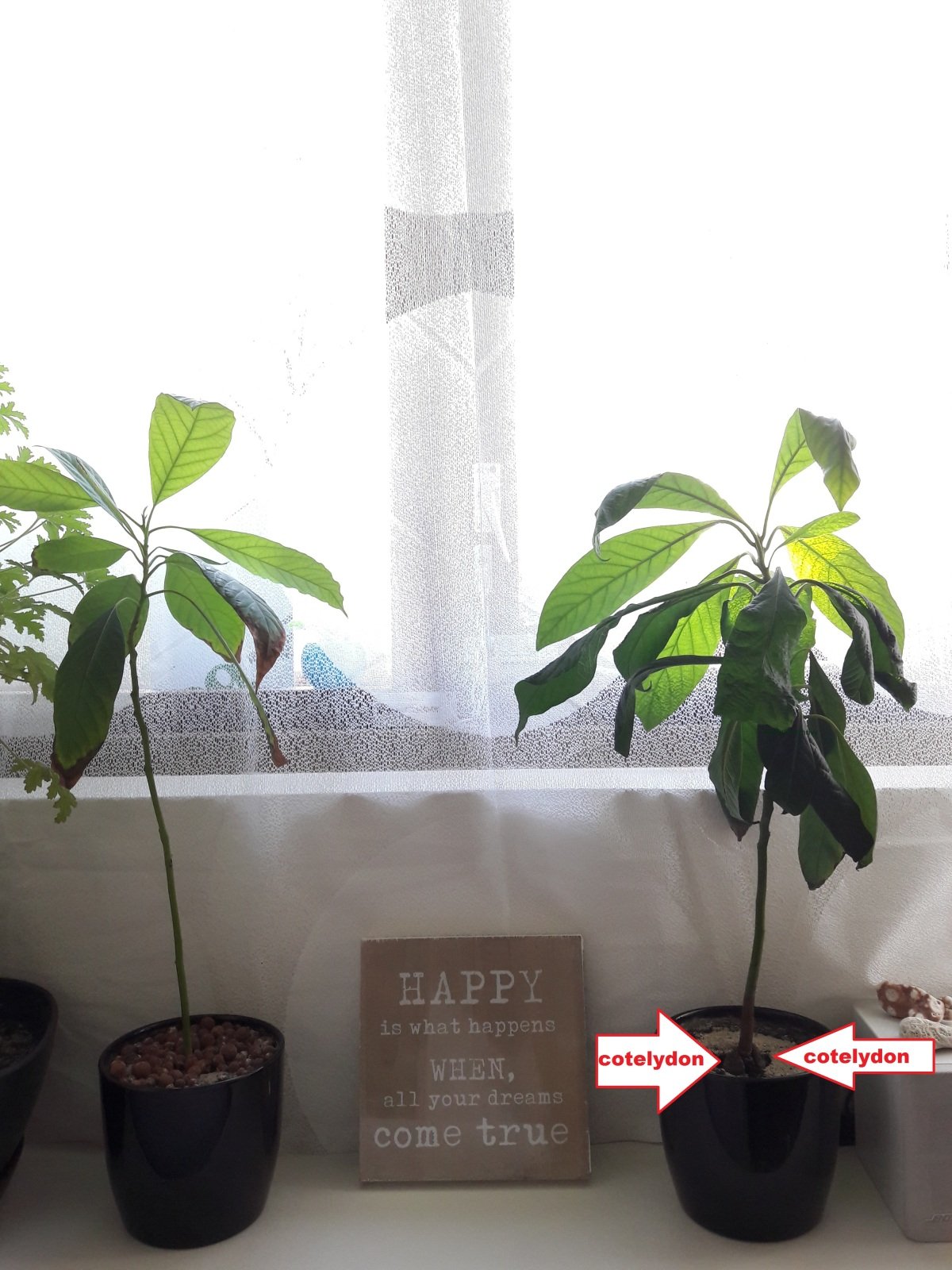
Their leaves would sometimes turn brown in cold days but just give them a flush every now and then and they'd green again.
Next year, I'd be putting them in the ground. To survive winter, they should be covered in plastic sheets or a greenhouse. In UK, they just cover the ground with coconut husks (from Action) we could just buy in the gardening stores here. If you don't have coconut husks any plastic sheets would do or better yet, mulches.
Just don't forget to give the soil around them a drink every two weeks in winter days.
Pomegranates and Kiwis
It's very easy to grow pomegranates and kiwis. Just pluck a few seeds off the fruit. The best time to grow any seed is right after eating them.
Clean them off the plastic sheet like that contains the juice of the fruit.
Soak in lukewarm water for 24 hours.
Pot and water.
Give it two to three weeks (depending on the weather conditions) to shoot some sprouts out.
Water once a week in cold days and twice a week from Spring to Summer.
You can use this method of growing any seed like that don't need stratifications.
Here are the pomegranates and kiwis that I've managed growing in the green house. These pomegranates have already survive 2 winters.
They have grown taller his year but I've pruned them way back but as you can see even this one which was bald and I thought would no longer make it - just kept growing back.
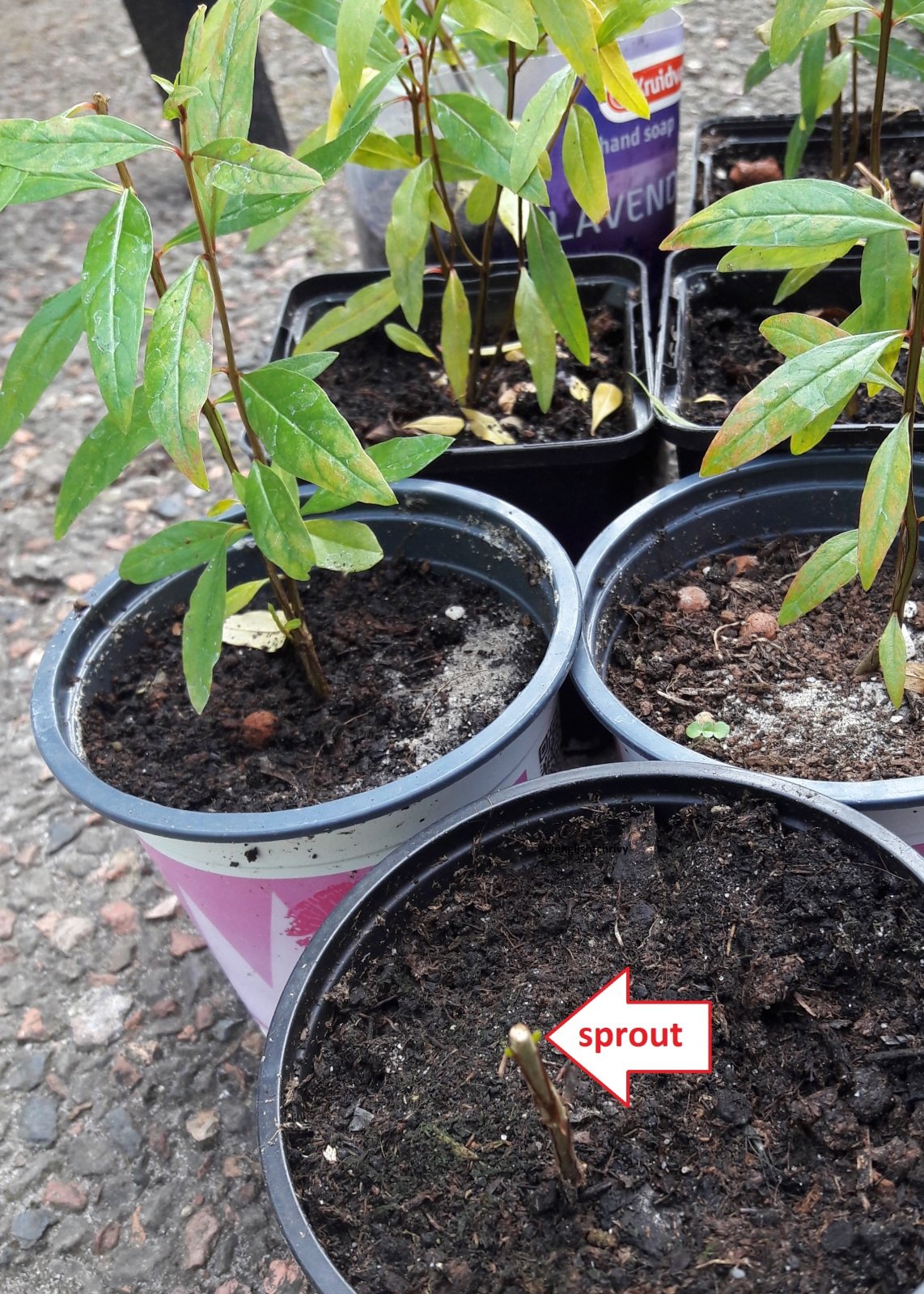
These kiwis have already survived 3 winters outdoors .
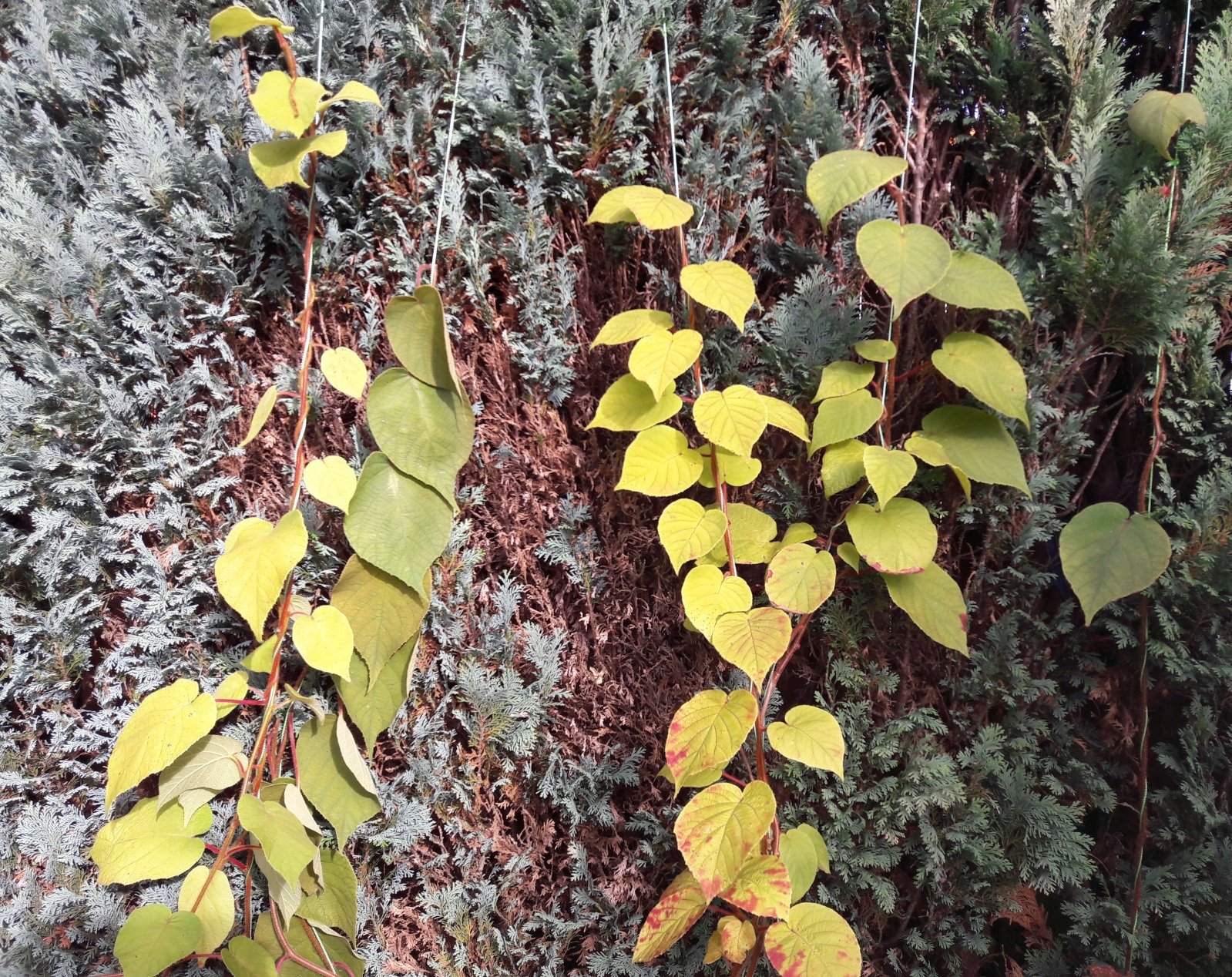
Next year, I'd be moving them in my organic garden. They look young and tiny as I have been pruning them back since I was growing them in containers. They just keep growing back and I just can't wait to set them in rows in the organic garden I joined in this coming Spring. Right now, their leaves are turning red as they also shred leaves off in autumn. They'll get leafless in winter and sprout new ones in Spring.

I've grown as many of those avocados, pomegranates and kiwis as possible as they grow as male and female. Growing more than one seed of each of those fruits would ensure you of having a male plant. Having both male and female plants would ensure fruiting. One of my neighbors has kiwis and they had their biggest harvest last year. They just pluck the fruits when they need them or they are pretty ripe.
Sweet Potatoes
This one's pretty easy and you can grow both indoors and outdoors. The best time to start growing them is in February. I've written the how tos in this article.
At that time, I just put back these cuttings/stems in the ground.

Water them twice a week in the green house.

They grow back on their own. I've still manage to harvest a few early this October and they are still growing back in the green house but rather pretty slow this time. I still don't want to let them go because if the winter is going to be kind this year, I won't have to go through all the trouble of growing them from roots again. I've managed to make 7 bountiful harvest on this set of sweet potato plants this year. The best ones were during summer but at that time, I haven't bumped into Steemit yet.
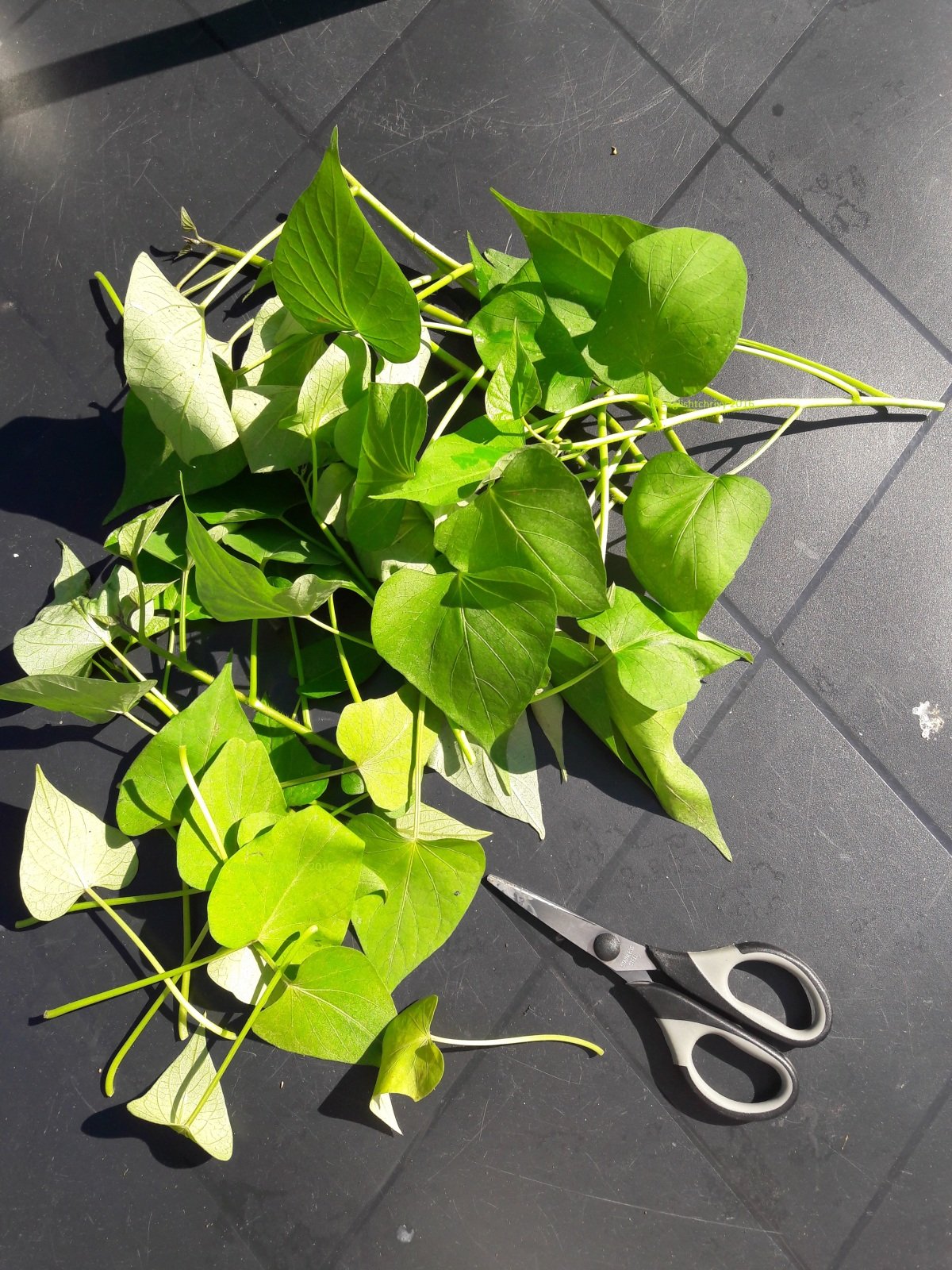
Paksoi
Paksoi is very easy to grow since they could be from seeds or from a Paksoi vegetable you bought in the market.
Just cut the leaves off using a kitchen shears till only the young leaves are left.
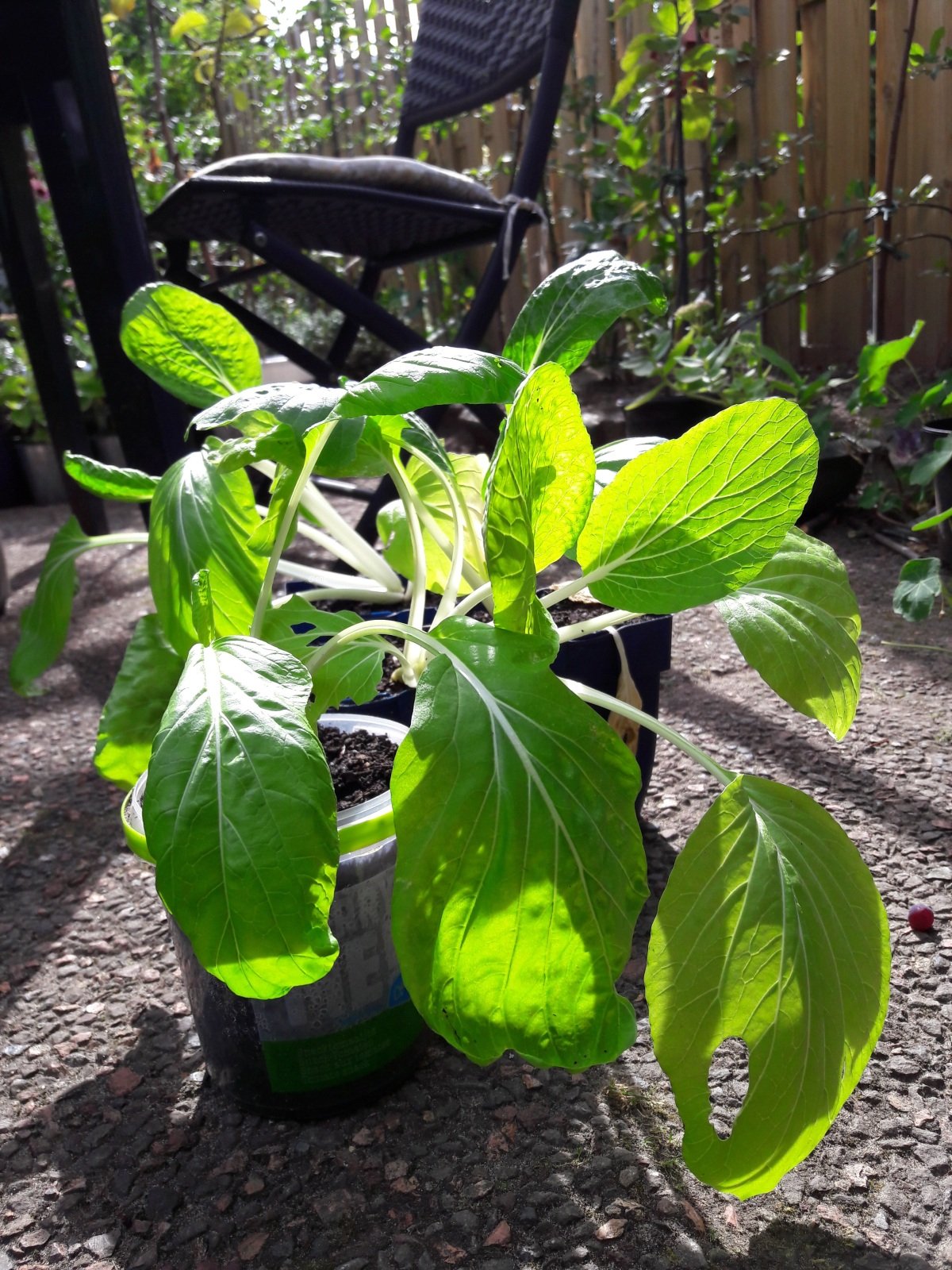
Pot whats left and soak.
Expose in direct sunlight and they'd automatically grow by themselves.
Water twice a week in summer and once in cold days.
Yes, Paksoi plants can survive till early autumn or longer if placed in the green house.
These are the Paksoi plants that have managed to survive till late early October this year. As you can see, I just cut the mature leaves off them and left the young ones. Put them back in the green house and harvested the last ones. I've used the ones I harvested this time in this recipe article
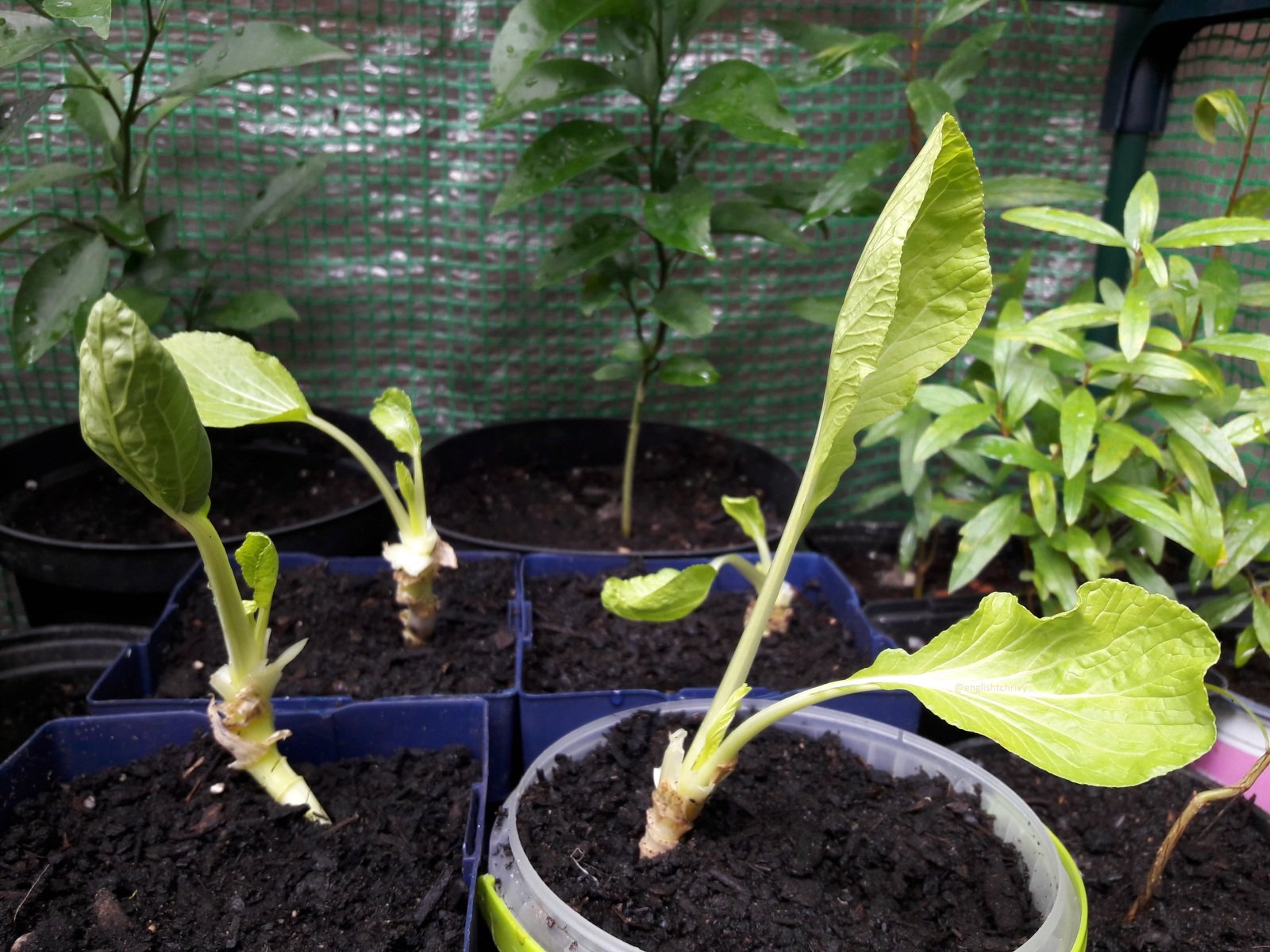
You can use the same method with Celeries.
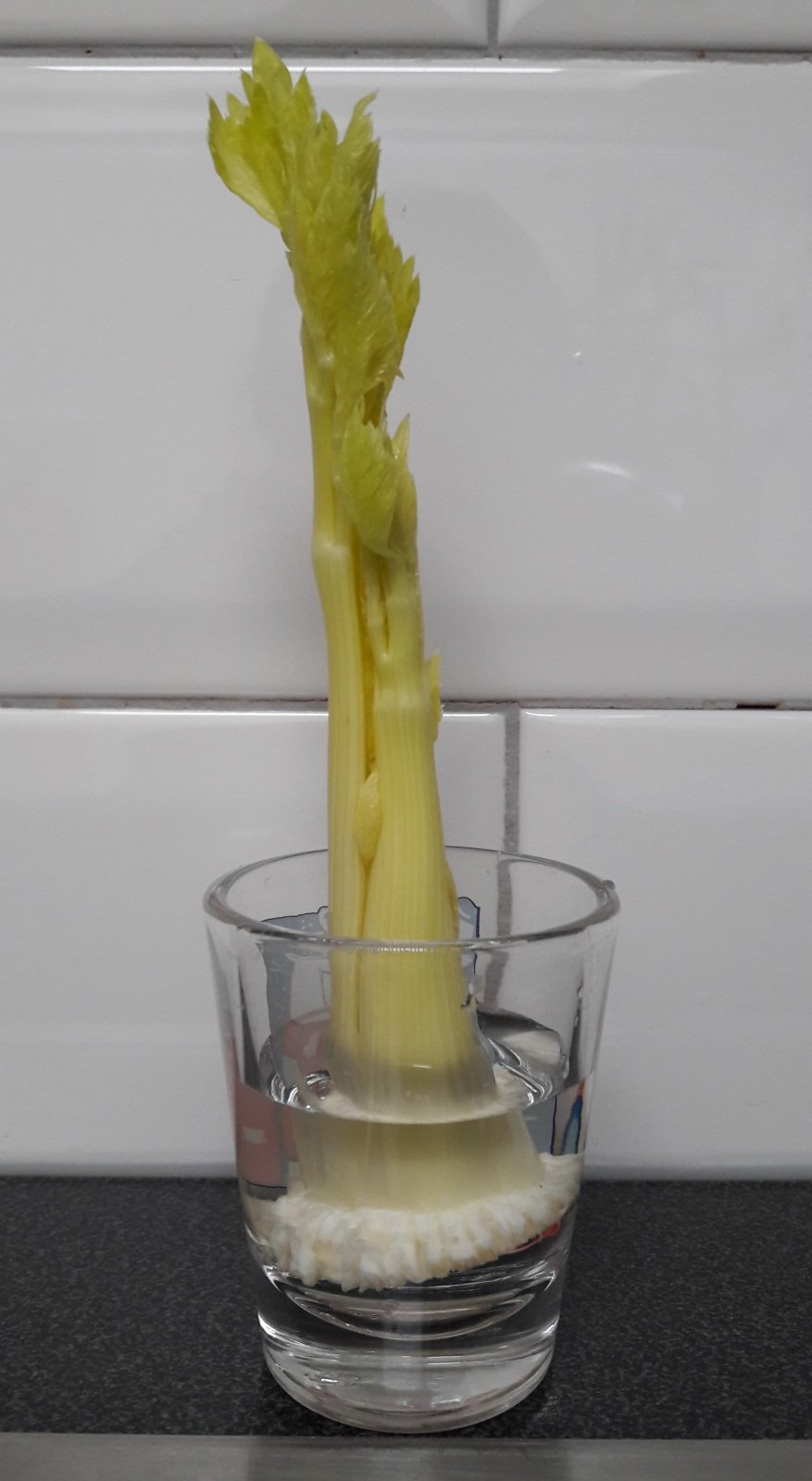
I've made a year harvest for these two celery plants. I used to have four of them but the other two was attacked by critters when I let them out of the green house in Spring. Unfortunately, back then, the lady bugs were still in hiding I had no allies to combat those critters and save the other two.

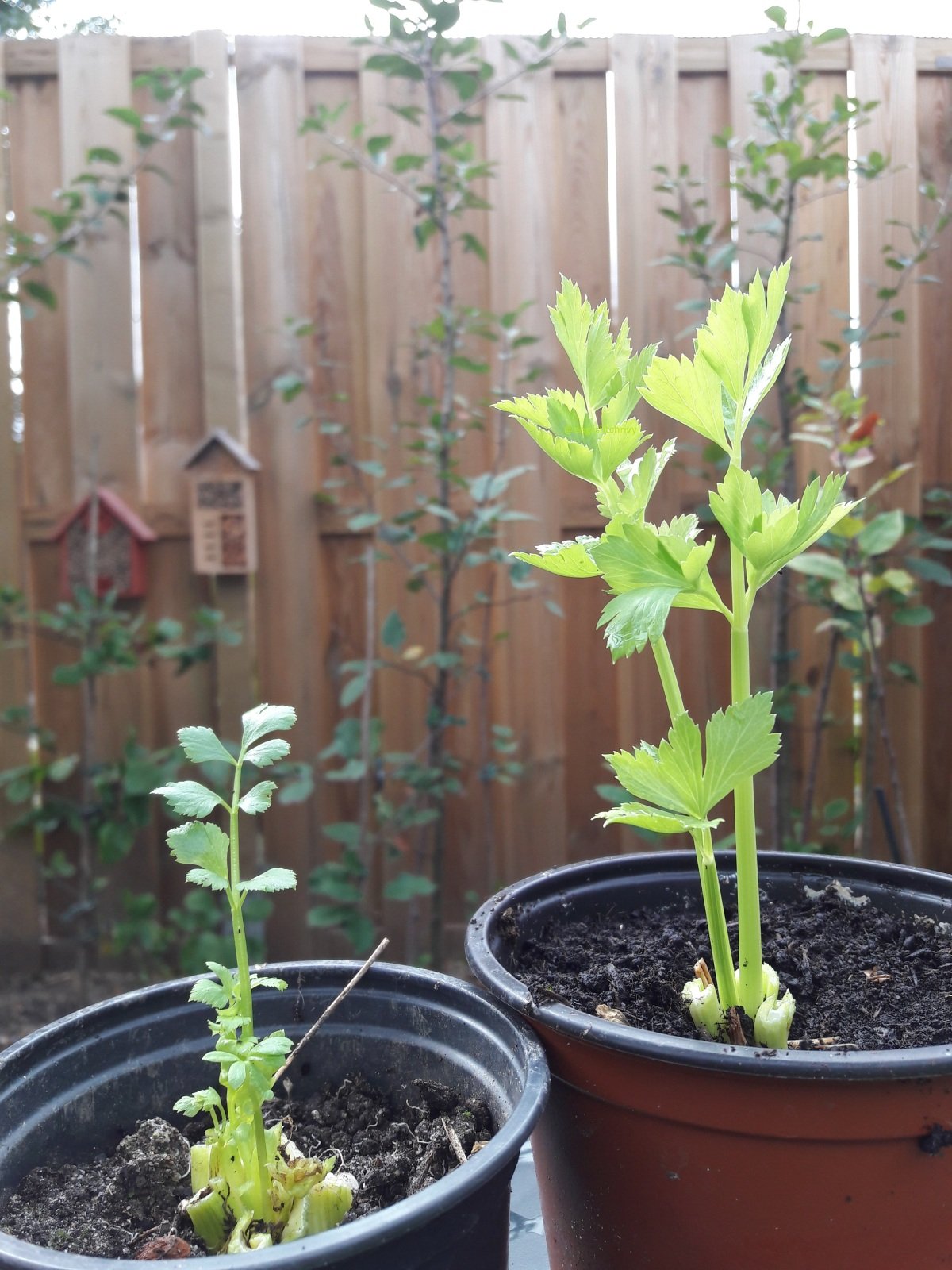
Those leaves during that harvest along with the sweet potatoes and Paksoi leaves were also the ones I used in this recipe article.
I grow and regrow these plants and still growing them because nothing beats self grown organic vegetables and fruits. Ask @papa-pepper -he wrote about that in this post and the many other organic gardening post he wrote about. Plus, if the bubble that is soon to explode would really burst, having your own food or at least knowing how to grow one would ensure you of a year or longer days of supplies of home grown fruits and vegetables.
I took the rest of the plants' pics using a Samsung Galaxy A3 2016 edition
@traducciones you may translate this if you'd like to.
Are you growing plants in containers on your terrace like @future24?
Do you love gardening like I do?

